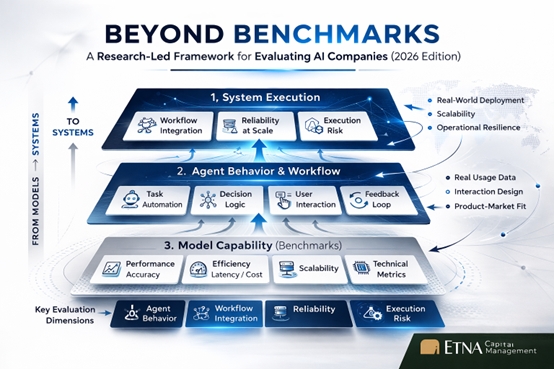
| Contributor
The onset of artificial intelligence, especially the rise of generative AI (GenAI) and intelligent automation, has been ground-shaking in the lifecycle of enterprises. With rapid improvements in large language models (LLMs) and machine learning, this promise is unprecedented productivity and innovation gains.
Market projections underscore this potential, with the global GenAI market already valued at nearly $45 billion and forecasted to potentially exceed $1.3 trillion by 2032. This technological wave could inject trillions into the global economy annually, with estimates suggesting GenAI alone might contribute $2.6 trillion to $4.4 trillion across key use cases.
Navigating this complex, rapidly evolving terrain requires leaders who possess both deep technical expertise and strategic foresight.
At the core of this transformation is Dheeraj Panchagnula, a global intelligent automation and GenAI leader recognized for architecting and scaling innovative AI-driven solutions that redefine business processes.
With over 19 years of driving end-to-end program delivery, portfolio governance, and AI-powered automation at tech giants like Walmart, Google, Microsoft, Autodesk, and GE, Panchagnula embodies the blend of technical mastery and business acumen needed to harness AI’s potential. His expertise spans Robotic Process Automation (RPA), Process Mining, Machine Learning, Distributed Systems, and, crucially, the practical application of GenAI and LLMs to solve real-world enterprise challenges.
As an innovator in AI-driven solutions, his work focuses on translating AI’s promise into tangible business value, aligning huge initiatives with organizational goals.
However, the path to AI adoption is fraught with challenges. Despite the immense potential and executive enthusiasm, many organizations grapple with implementation hurdles, with one study indicating that 74% struggle to scale AI initiatives effectively to capture value.
Bridging the gap between AI’s theoretical capabilities and its practical, reliable deployment at an enterprise scale demands a nuanced understanding of technology, data, ethics, and organizational change.
Through Panchagnula’s experiences and strategic advice, a clearer picture of how enterprises can successfully leverage GenAI and intelligent automation for sustainable growth and competitive advantage can be seen.
The Journey, Challenges, and Architecture of Enterprise AI
According to Panchagnula, his journey into AI was sparked by a “deep fascination for how technology could mimic and enhance human intelligence.” He emphasizes that successful AI adoption confronts challenges like achieving enterprise-grade scale, ensuring data quality, and navigating ethical compliance.
Panchagnula notes, “One of the most common challenges is scaling AI solutions to meet enterprise demands.” His architectural approach prioritizes scalable architectures built on distributed computing, robust data pipelines, and performance optimizations to build reliable AI systems capable of supporting millions of users and delivering consistent, high-quality results, crucial for overcoming common implementation hurdles.
Panchagnula champions augmented intelligence—where AI amplifies human expertise rather than replaces it, using human-in-the-loop workflows. “I ensure every AI system I design is transparent, compliant, and free from bias by embedding explainable AI (XAI) techniques, regulatory safeguards, and continuous oversight,” he asserts.
Looking ahead, he sees GenAI reshaping enterprises through hyper-personalization, autonomous agents, and creative innovation. Key trends include advancements in LLMs powering sophisticated chatbots, the rise of autonomous AI for workflow automation, and the democratization of AI through no-code/low-code platforms, all underpinned by critical ethical and explainable AI frameworks.
Transformation in action and strategic scaling
A case study illustrates AI’s impact: Panchagnula led an AI document processing platform development for a Design firm.
He recommends positioning AI initiatives around a defined vision aligned to the business, then leveraging scalable architectures, prioritizing data quality, and addressing ethical frameworks to scale enterprise AI. Furthermore, he states the importance of investing in talent and change management, as well as establishing real-time KPIs and feedback loops to oversee continuous monitoring that guarantees sustainable success and impactful results across the organization.
Panchagnula’s career as a model means showing the way toward building enterprise AI at a scale that is commercially interesting, reliable, and ethically sound. Without fail, his work emphasizes the necessity of sound architecture, stringent data governance capability, and active frames of ethics.
Conclusion
His advocacy for augmented intelligence, that is, human development power and trust imparted through transparent and human-in-the-loop designs, is key guidance to follow. While businesses work to scale AI, his holistic approach that integrates technology with business vision, talent development, continuous measurement, and ethical responsibility is absolutely essential.
Enterprise AI has significant potential, but its long-term value depends on careful implementation. When adopted with a clear focus on strategic objectives and guided by human values, it can support more effective decision-making and generate broad organizational benefits.







